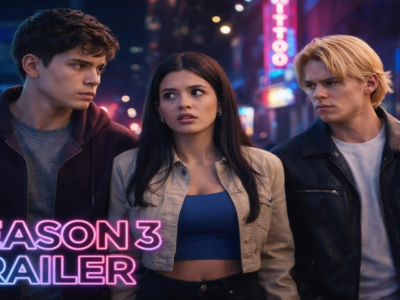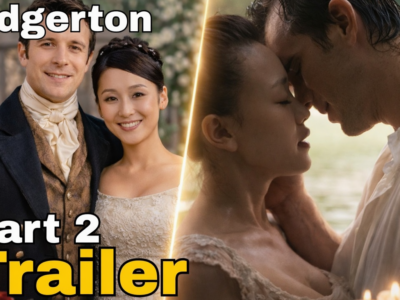When Rachel Zegler, a 17-year-old high school student from Clifton, New Jersey, responded to an open casting call for Steven Spielberg’s 2021 remake of West Side Story, she had no idea that her life was about to change forever. The Colombian-American actress and singer, then a senior at Immaculate Conception High School, beat out over 30,000 applicants to land the role of Maria, a part she had previously played in a 2017 school production at the Bergen Performing Arts Center. What unfolded behind the scenes of this monumental production was a story of grit, talent, and an unexpected bond with one of Hollywood’s most legendary directors—a journey so remarkable that it left industry insiders and fans alike in awe.
Zegler’s path to West Side Story began in January 2018, when her friend Makena Reynolds sent her a tweet from casting director Cindy Tolan announcing an open call for the film’s lead roles. “Thank me when you’re famous,” Reynolds wrote, a message Zegler would later recall with gratitude in a Variety interview. That night, Zegler recorded a self-tape in her bedroom, singing “Tonight” and “I Feel Pretty,” two iconic songs from the musical. She submitted the tape with little expectation, unaware that hers would be the second audition Spielberg saw, as she revealed in a 2021 Variety interview. Over the next year, Zegler endured a grueling audition process, attending callbacks in New York and working on scenes and choreography in person with Spielberg himself. On January 9, 2019, she received the life-changing call: she was cast as Maria in a major Hollywood production, directed by the man behind classics like E.T. and Jurassic Park.
What makes Zegler’s behind-the-scenes story so unbelievable isn’t a single dramatic moment, but rather the sheer improbability of her ascent. At 17, with no agent and only high school musicals on her resume—roles like Belle in Beauty and the Beast and Ariel in The Little Mermaid—Zegler convinced Spielberg to delay rehearsals for his $120 million film so she could honor a prior commitment: playing Princess Fiona in her school’s production of Shrek the Musical. As reported by the Daily Mail, Spielberg, who produced the original Shrek film, agreed without hesitation, telling her, “Of course you can!” This small but telling act of dedication—to her school, her peers, and her craft—set the tone for Zegler’s approach to West Side Story, earning her respect from the cast and crew before filming even began.
Once on set, Zegler faced the daunting task of working with a director whose name alone intimidated her. In a 2021 interview with ABC7 New York, she admitted to being “scared” on her first day, overwhelmed by Spielberg’s reputation and the scale of the production, which wrapped in 2019 but was delayed to December 2021 due to the COVID-19 pandemic. Spielberg noticed her nerves and offered advice that would shape her performance: “It’s not a weakness, it’s a strength. Take that fear and incorporate it into your character.” Zegler took this to heart, channeling her anxiety into Maria’s vulnerability, a young Puerto Rican woman caught in a tragic love story amid gang rivalry in 1950s New York. Her authenticity as a Latina actress—her mother is Colombian, and her father is Polish—brought a depth to the role that the 1961 film, with Natalie Wood’s whitewashed portrayal, had lacked, as noted in a Collider piece on the remake’s improvements.
Spielberg’s mentorship extended beyond emotional support. Zegler revealed in a 2023 People interview that on her first day, Spielberg instructed her not to blink during a scene where Maria walks toward the camera in her white dance dress and red belt. “Imagine Janusz Kaminski putting a whole light in your face and you have to A) not blink, B) not tear up, and C) not die because it’s your first day on your first movie ever,” she tweeted, referring to the film’s cinematographer. Joking that her “eyeballs of steel” won her a Golden Globe for Best Actress in a Musical or Comedy in 2022, Zegler showcased her ability to meet Spielberg’s exacting standards while maintaining her humor—a trait that endeared her to the crew. BuzzFeed reported that she and Spielberg often sang Broadway standards on set, creating a lively atmosphere despite the intense schedule.
Zegler’s dedication to authenticity was another highlight of her behind-the-scenes work. Spielberg’s remake aimed to honor Puerto Rican heritage more authentically than the original, as he stated in a 2021 “20/20” special: “We needed this to be a Latinx production.” Zegler worked extensively with dialect coaches Tom Jones, Victor Cruz, and Julio Monge to perfect her accent, ensuring Maria’s cultural identity was portrayed with nuance, as Variety noted. She also drew on her own experiences as a Latina, telling BuzzFeed, “I’m very blessed to be a part of something that explores the idea of Latin joy,” a perspective often missing from media portrayals of Latinos. However, Zegler faced challenges off-set, including skepticism from white studio executives who repeatedly questioned her Latina identity during casting, as she shared in a 2025 Allure interview. “Do you want me to bring my abuelita in?” she recalled thinking, highlighting the microaggressions she endured despite her clear qualifications.
The emotional toll of the role was significant, especially in the film’s final scene, where Maria confronts the loss of her brother and lover, Tony, played by Ansel Elgort. BuzzFeed quoted Zegler saying the scene required her to “point a gun at my best friend,” an emotionally draining moment. After filming, Spielberg told her, “You just ran an emotional marathon, and you won,” a compliment that helped her push through. This scene, which Collider praised for its tragic depth, showcased Zegler’s ability to carry the film’s weight, fulfilling Spielberg’s vision of a more impactful remake.
Critically examining the production, it’s worth noting the broader context of West Side Story’s legacy. The Los Angeles Times pointed out that despite Spielberg’s efforts, the musical’s foundation—created by white Jewish artists in the 1950s—still carries problematic appropriation of Puerto Rican culture. While Zegler’s casting and the film’s Latinx representation were steps forward, some critics, like Richard Brody in The New Yorker, argued that Spielberg’s direction sometimes oversimplified Maria’s emotions, likening Zegler’s portrayal to a “Disney princess.” This raises questions about whether Spielberg fully addressed the musical’s inherent flaws, even with a talented lead like Zegler.
Zegler’s behind-the-scenes journey culminated in a life-changing moment: winning a Golden Globe in 2022, exactly three years after her casting on January 9, 2019. She posted an emotional reaction video on X, showing a tear rolling down her face, and wrote, “I got cast as Maria in West Side Story on 1/9/19. And I just won a Golden Globe for that same performance, on 1/9/22.” Spielberg’s guidance didn’t end with filming; he helped Zegler find representation after wrapping, ensuring her career trajectory soared, as she told Variety. She went on to star in The Hunger Games: The Ballad of Songbirds & Snakes (2023) and Disney’s Snow White (2025), cementing her status as a rising star.
What’s truly unbelievable about Zegler’s story is how a teenager from New Jersey, with no professional experience, not only landed a lead role in a Spielberg film but also forged a meaningful connection with the director, navigating intense challenges with grace and humor. Her journey behind the scenes of West Side Story—from delaying rehearsals for a school play to singing standards with Spielberg on set—reveals a young woman whose talent and determination defied all odds, leaving a lasting impact on Hollywood and inspiring countless fans along the way.


